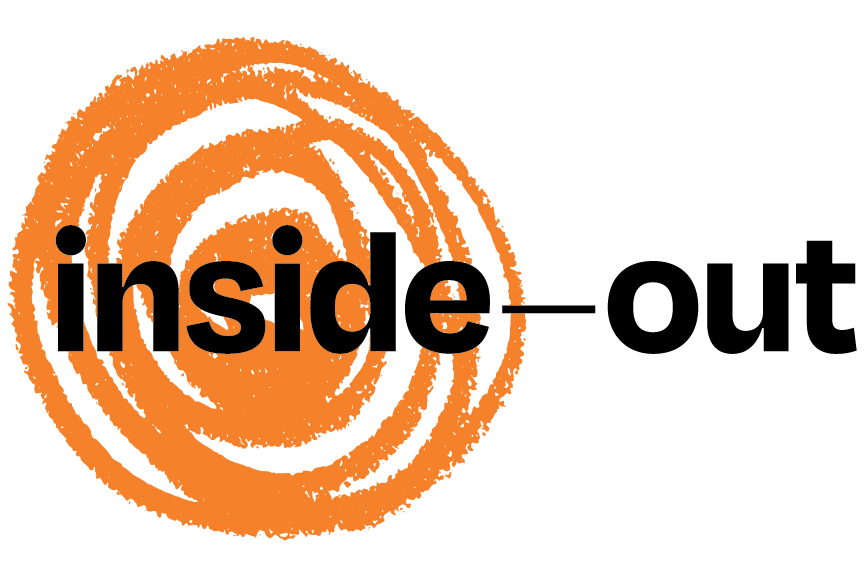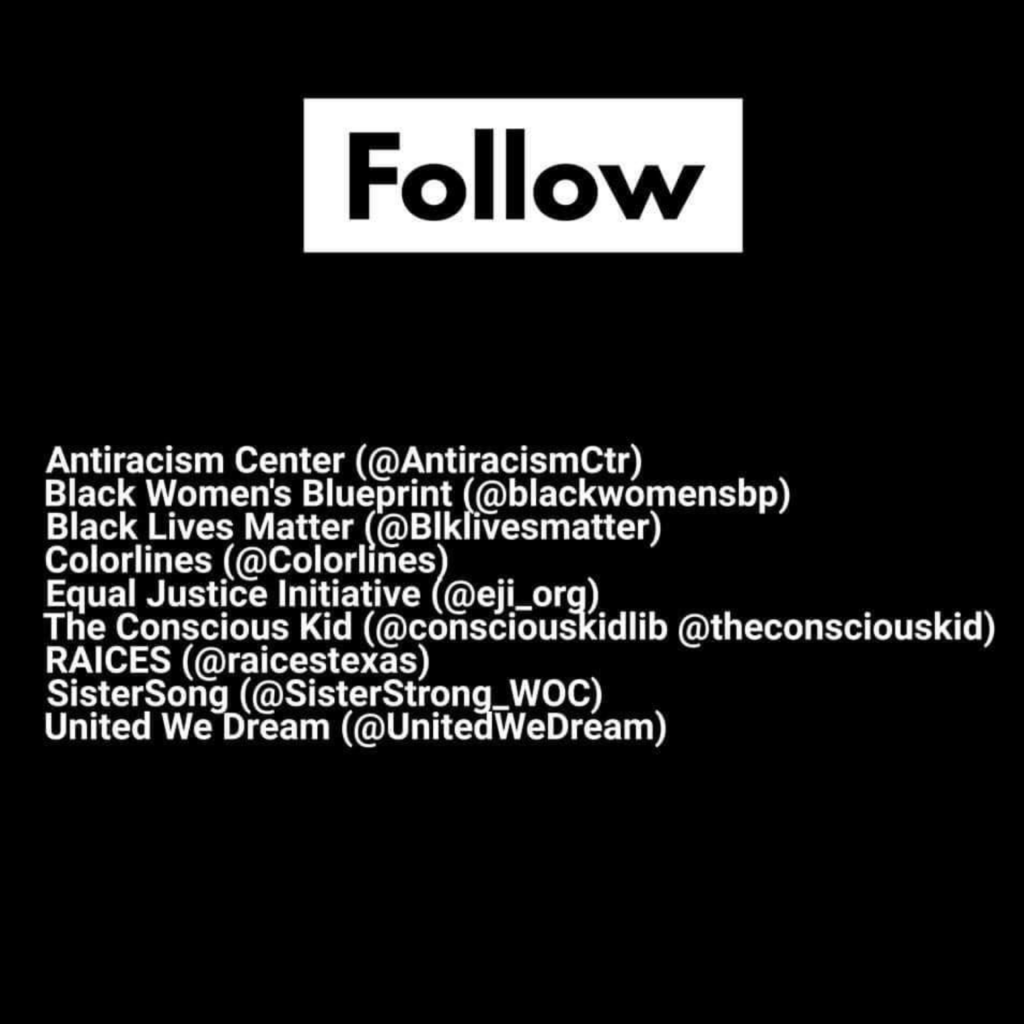Friday Sabbatical
The world is changing, and there is work to be done. Now more than ever. But things won't change overnight, so whatever you’re doing this Friday, I invite you to pause. Look at your mind. Notice what you're telling yourself, without judgement. Breathe. And remember that even now, even this, is just as it is. And It is perfect. And that feeling that it's the farthest thing from perfect, that feeling is part of Its perfection. Just sit here, and simply be a part of It.
Thank you for taking that time. Now, we've work to do.
Here are five things that stuck with me this week (not all of which have to do with pandemics and systematic racism, but some of which do, because we can't let ourselves look away):
1. I was at the #Black_Lives_Matter protest this past weekend in Grand Rapids, and saw first hand a peaceful protest being undermined by organized people (mostly if not entirely white) intent on creating havoc. There are so... many... examples of this.
The thinly veiled threats in the first tweet almost scared me away from the event. I remember thinking of my kids growing up without a dad. Glad I pushed through though, as it gave me the opportunity to catch the second guy trying like hell to push a peaceful crowd into violence.
It seems to me this is an organized effort by someone to sew discord and fear in American citizens, which by definition makes these people terrorists. But despite what Trump says, it's not ANTIFA.
Meanwhile, Trump's example is making it seem like the division in our country is at least 60% underpinned by race, reflecting the same tension that lead to the Civil War. :
It wouldn't be surprising, upon reflection, that the macro story of America is one of race, and oppression. A country who fought its way from underneath an oppressor, only to then oppress a specific version of its citizens, who then had to fight their way, continuously, from under an oppressor. If it is all about race, at least now that's out in the open and we can deal with the real problem.
Either way, I get the very tangible sense that we're at the beginning of something. What, I'm not sure. I see myriad hyperobjects in influence. But it's the beginning, not the middle or end.
2. Switching gears, a close friend of mine sold his company for $500m. He may also cure Alzheimers in time. And he built the whole thing in Grand Rapids.
If it wasn't clear by Duo's exit in 2018, it should be now that founders do NOT need to go to the coasts to make their mark. Michigan's infrastructure will do just fine. Congratulations Mark, and thanks for showing us what's possible.
3. I've never been a Trevor Noah fan because, honestly, he's not John Stewart. But he's growing on me. This monologue was insightful and raw, and produced from what looks like the head of his bed. It's worth watching all the way to the end.
One part that sticks with me: in the same way that we look to our parents as models of how we should be in the world, we look to our political leaders and others in authority (police) the same way. Regardless of their rhetoric, the behavior they model speaks much louder. At base, what we have in a president is not a set of policies or a party-identity -- we have a model of what it means to be, at the highest level, American.
The reality is that very little policy impacts me directly, and I imagine I'm similar to most people. As such, the example set by a candidate's behavior seems to me to be paramount, and in any case significantly more important than his positions on policy.
Speaking of voting, I've a number of friends who still resist voting because they don't think it matters to the outcome. I learned something interesting about the voting process this week (conversation here), which underlines just how much it matters not only what you vote for, but the sheer fact THAT you voted.
Every campaign (local, state, fed) has limited time & resources and they need to decide whom to talk to and whom not to talk to. So they look at public voter files, see who has a history of voting in the pertinent election, and then only target those who are likely to show up.
This also means that, of course, politicians only poll "likely voters" to determine their top issues. This might seem cynical, but it's the basics of market research that we accept in other marketplaces. Ford only cares about drivers. Starbucks cares about coffee drinkers.
This means that, quite simply, politicians care about the priorities of voters...not non-voters. And whether you are a voter or a non-voter is the easiest thing in the world for politicians to look up. I can access the data on my laptop right now.
4. Enough about the crisis. Let's talk about the crisis. Is it me, or is it weird that we're now mingling with other families, golfing and preparing to open restaurants, after universally quarantining for fear of death for two months, with absolutely nothing having changed in the interim? Maybe the weather? I guess the sun makes things less contagious somehow.
This transition is an interesting microcosm of how people make decisions, as Tucker Max (yes, the Tucker Max who wrote I Hope They Serve Beer In Hell; he did a 180 at some point and developed depth. There is hope for us all) illustrates here. I doubt this makes people stay inside, but it might just put our brain's "logic" in proper perspective. We don't control the thoughts that run through our head, we just like to pretend we do:
5. Finally, amidst the backdrop of our bungled response to COVID (we still can't test people en masse after 3 months? come on people) and overt racism at the highest levels of American society, it's clear to me that if we are to get through this racial and philosophical rending of society, it will be because a small group of committed people acted. It will be because people like you and me didn't kick the can over to our kids, or our parents, or our elected officials -- we go to work on racial equity ourselves. It is our fight, each of us, because we see the problem. We know our society is racist at its core. The Amy Cooper video resonates so much because white people watching it know they know too, although it's hard to admit. If you see the problem, it's your fight.
Each of us has the ability to help in some way, whether that's joining a protest, influencing policy directly, or finally talking with family about the topic we always avoid for fear of making things weird. Or any of these other 75 things. But it starts by simply asking ourselves "what can I do?" (which is an intentionally different question from "can I do anything?"), and then doing it. And then asking again, over and over. That's the work that needs doing right now, and our country very likely depends on me doing it. And you, too.
Ariana Waller is doing the work, and got arrested for it. Janay Brower did, too. Paul Moore is doing the work. Ben VerWys is doing the work. Mike Ward is doing the work (and is a hell of a speaker, turns out, against all odds ;). Joe Pecherski is doing the work emailing his Mayor about data-driven policies to decrease police violence. These people aren't special (I know because I'm doing the work, and I'm not special). They're just like you, only they've made the decision to become uncomfortable in the pursuit of change.
History is happening right now. And each of us get a choice whether we'll be a part of it or stand on the sidelines. I'm grateful for everyone that is choosing to do the work.
I am certain I'm missing examples, so if you have links to people doing work to bring change to our country, please post them in the comments as I'd love to be further inspired by people. It doesn't have to be world changing in itself, but with enough of them, it surely will be.








